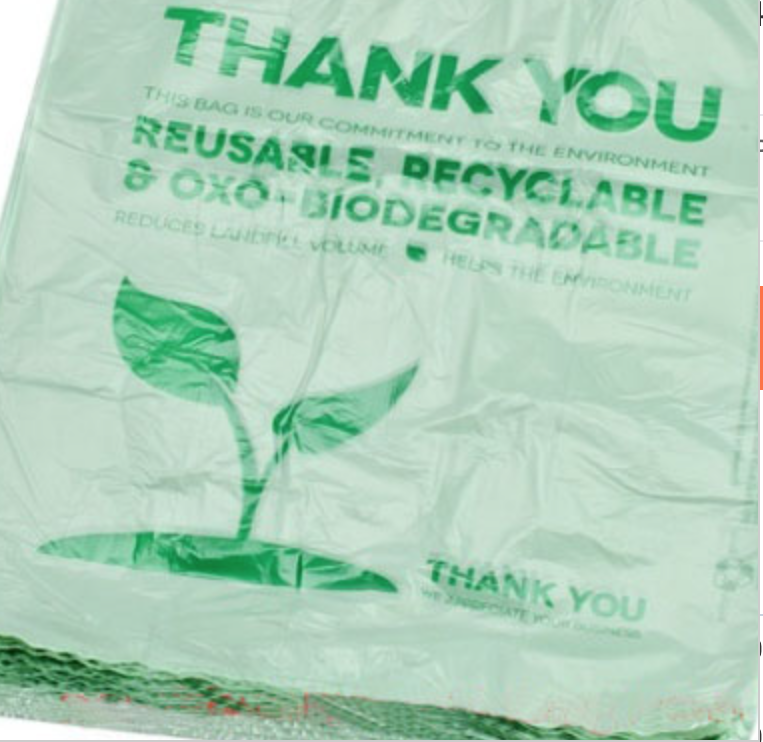
In an open letter addressed to UK Secretary of State George Eustace, a group of some 7 associations and Greenpeace urgently request a total ban on the use, sale and distribution in the UK of oxo degradable plastics, aka oxo biodegradable, oxo fragmentable or bio-assimilable plastics.
They write that the UK voted for the European Single Use Plastics Directive, which includes the clause at Article 5 that “Member States shall prohibit the placing on the market of the single-use plastic products listed in Part B of the Annex and of products made from oxo-degradable plastic.”
Despite the fact that the UK is no longer part of the EU, according to these associations “we have retained the ambition to achieve at least the equivalent of European environmental norms”. They also point out that were the UK to allow these plastics, anything containing them or packaged in them could not be exported to EU markets.
Moreover, it is not just the EU: in the USA, too, sales of such additives have been effectively stopped by laws stating that the use of marketing terms such as biodegradable for plastics using these additives is considered misleading. Companies have been fined for using such terms and as a result these additives are not used.
Why should this ban be implemented now, they ask?
“As the UK is now in the process of revising legislation on the use of plastic packaging, now is the time to act. Overwhelming scientific evidence, including research commissioned by DEFRA3 and the EU, has demonstrated beyond doubt that the claims these additives transform polyolefin plastics into biodegradable plastics are unfounded. It is scientifically well-known that all polyolefin plastics are naturally prone to oxidation under environmental conditions (aging). Such oxidation ultimately leads to fragmentation and formation of microplastics, which build up in oceans and in soil.
The “oxo-additives” are designed to accelerate the natural oxidation of polyolefins, causing an early fragmentation and the fragmentation of plastic products into microplastics. Thus the effect of these additives (if any) is merely to accelerate the conversion of macroplastics into microplastics, not solving the global problem of plastic pollution but worsening it.
Even the claimed disintegration effectiveness is questionable, under some environmental conditions. Experiments undertaken by the University of Plymouth in 2019 showed that plastic films claiming to be “degradable” due to the oxo additives in them, remained intact in the sea and in soil after 3 years.
Moreover, such plastics are not recyclable as the powders contained in them assist degradation and therefore render instable plastic polymers when recycled together. These plastics are also not compostable and lead to confusion among consumers and retailers who consider them to be biodegradable as if they were compostable. A very wide coalition of signatories including some of those signing here, led by the Ellen Macarthur Foundation, called for a ban as long ago as 2017 that was reiterated in 2018 . That is attached. We wish to remind you of the call from the Foundation and reiterate it ourselves here.
Whilst we in the UK are ourselves introducing national bans on single use plastics now is the time to also ban the scourge of plastic fragments deriving from oxo additives. We hope you will act quickly to implement this ban in the UK without further delay and respect the undertaking the UK voted for when this issue was raised in the EU.
The full list of signatories to the open letter includes the Anaerobic Digestion and Bioresources Association (ADBA), the Bio-based and Biodegradable Industries Association (BBIA), the ESA, the Foodservice Packaging Association (FPA), Greenpeace, A Plastic Planet, REA and Recoup.
Source
Bioplastics MAGAZINE, 2020-06-08.
Supplier
A Plastic Planet
Anaerobic Digestion and Bioresources Association
Bio-based and Biodegradable Industries Association (BBIA)
Environmental Services Association ESA
Foodservice Packaging Association
Greenpeace International
REA Resource Recovery Systems, LLC
RECOUP
University of Plymouth
Share
Renewable Carbon News – Daily Newsletter
Subscribe to our daily email newsletter – the world's leading newsletter on renewable materials and chemicals










